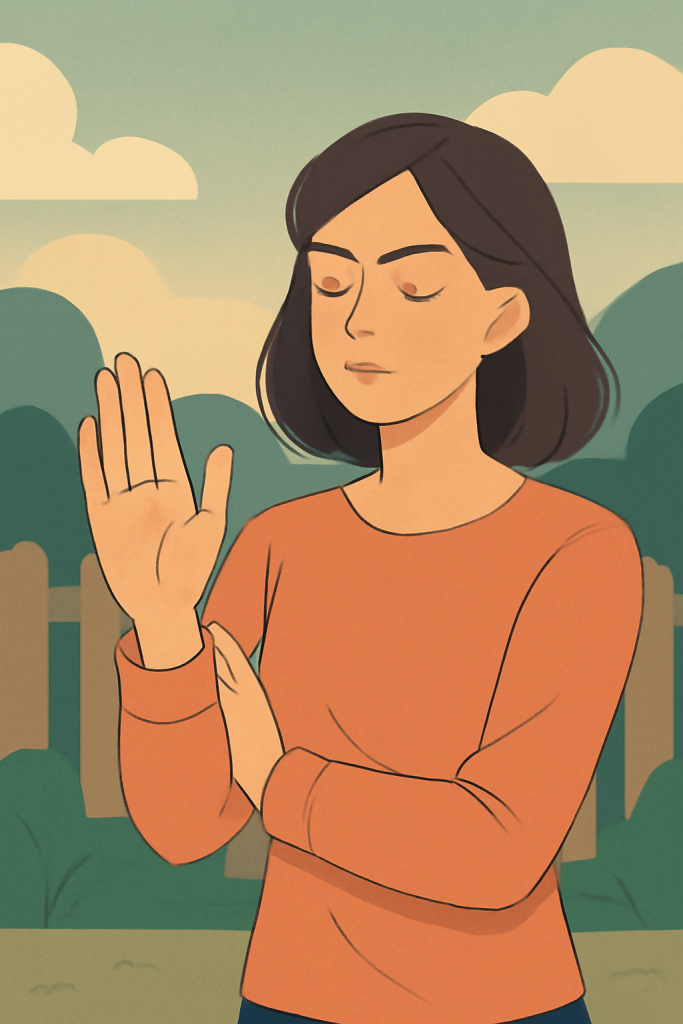Setting boundaries in life is one of the most empowering ways to protect your time, emotional energy, and mental well-being. Learning to say no with confidence can help you prioritize your needs and build healthier relationships.

Why “No” Is Your Superpower in the Burnout Era
We live in a time where “busy” is worn like a badge of honor. From office demands to social obligations, the pressure to say “yes” to everything can be overwhelming. However, an emerging shift is underway—more individuals, especially Gen Z and Millennials, are embracing the power of saying no as a necessary boundary-setting strategy for survival in a chaotic world.
Recent studies confirm that chronic overcommitment leads to anxiety, sleep deprivation, and even burnout syndrome (World Health Organization, 2019). Saying no is no longer just a personal decision—it’s a mental health imperative.
What Are Boundaries, and Why Do They Matter?
Boundaries are limits you set for yourself to protect your well-being. These could be:
- Time boundaries: Not answering work emails after hours.
- Emotional boundaries: Not absorbing someone else’s negativity.
- Physical boundaries: Needing personal space or rest.
- Digital boundaries: Logging off social media.
Dr. Brené Brown, a research professor at the University of Houston, states, “Daring to set boundaries is about having the courage to love ourselves, even when we risk disappointing others” (Brown, 2012).
Why It’s So Hard to Say No
Humans are wired to seek connection and avoid rejection. Saying no feels like a threat to that connection. Add to that the hustle culture glorified by platforms like TikTok and Instagram, and it becomes clear why boundary-setting feels like rebellion.
Fear of missing out (FOMO), guilt, or people-pleasing tendencies can prevent even the most assertive individuals from declining invitations, favors, or extra responsibilities.
The Modern Movement: Digital Detox and “Soft Life” Culture
A wave of online influencers are leading a digital rebellion with movements like “soft life” and “quiet quitting.” These trends prioritize peace over productivity and highlight the psychological benefits of opting out.
According to a 2023 McKinsey report, 53% of Gen Z workers are seeking jobs that respect personal boundaries and offer flexibility (McKinsey & Company, 2023).
How to Master the Art of Saying No (Without Burning Bridges)
Here are actionable ways to start protecting your energy today:
1. Use Clear, Honest Communication
Say what you mean without overexplaining. For example:
“I can’t commit to that right now, but thank you for thinking of me.”
2. Practice Saying No in Low-Stakes Situations
Declining a social invite or turning down a free trial builds confidence for bigger boundaries.
3. Replace Guilt with Gratitude
Instead of apologizing, show appreciation:
“Thanks for the opportunity. I’m focusing on other priorities now.”
4. Prepare for Pushback
People accustomed to you saying “yes” might resist. Stay firm and polite.
5. Use Technology
Tools like autoresponders, calendar blockers, and screen time limits help automate boundary enforcement.
Saying No Boosts Mental Health and Success
Boundaries aren’t just for avoiding burnout—they’re essential for long-term growth. Psychology Today reports that people who set strong boundaries tend to have higher self-esteem and healthier relationships (Psychology Today, 2022).
Even tech giants are adapting. Google’s “Focus Time” and Zoom’s built-in break reminders reflect the growing importance of mental space and autonomy.
Final Thoughts: You Don’t Owe Everyone Everything
Saying no isn’t selfish—it’s smart. It’s what helps you show up fully where it truly matters. When you prioritize your peace, the rest of your life gets better too. Whether you’re a parent, student, entrepreneur, or employee, setting boundaries is the foundation for a sustainable, joyful life.
References
- Psychology Today. (2022) The Mental Health Benefits of Saying No. Available at: https://www.psychologytoday.com/us/blog/high-octane-women/202201/the-mental-health-benefits-saying-no (Accessed: 10 May 2025).
- Brown, B. (2012) Daring Greatly: How the Courage to Be Vulnerable Transforms the Way We Live, Love, Parent, and Lead. London: Penguin Random House.
- World Health Organization. (2019) Burn-out an “occupational phenomenon”: International Classification of Diseases. Available at: https://www.who.int/mental_health/evidence/burn-out/en/ (Accessed: 10 May 2025).
- McKinsey & Company. (2023) How Gen Z is reshaping the workplace. Available at: https://www.mckinsey.com/featured-insights/mckinsey-on-books/how-gen-z-is-reshaping-the-workplace (Accessed: 10 May 2025).






